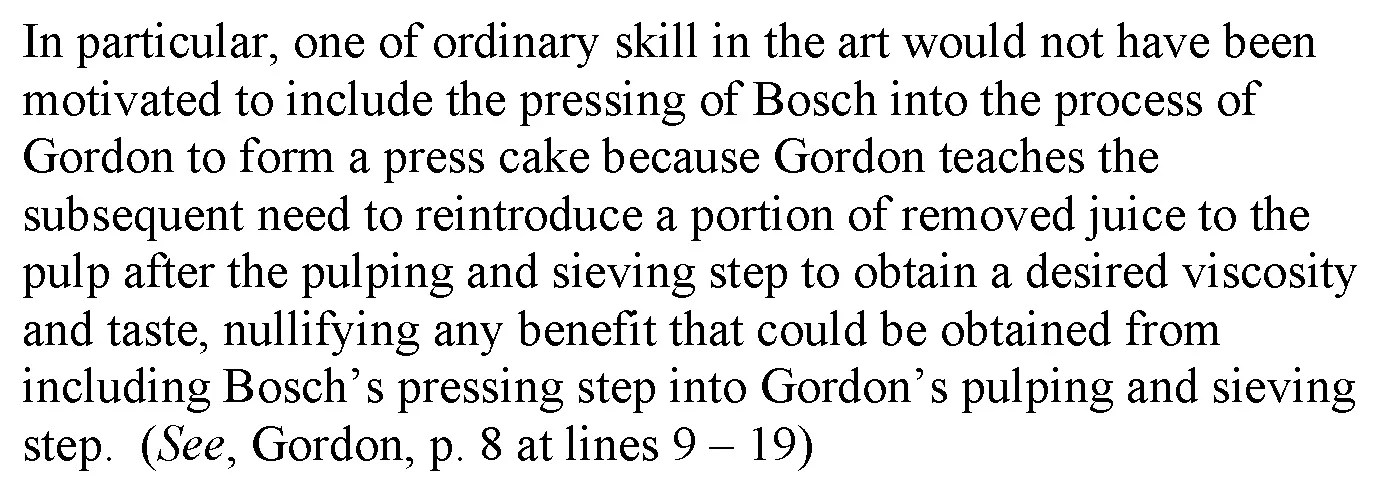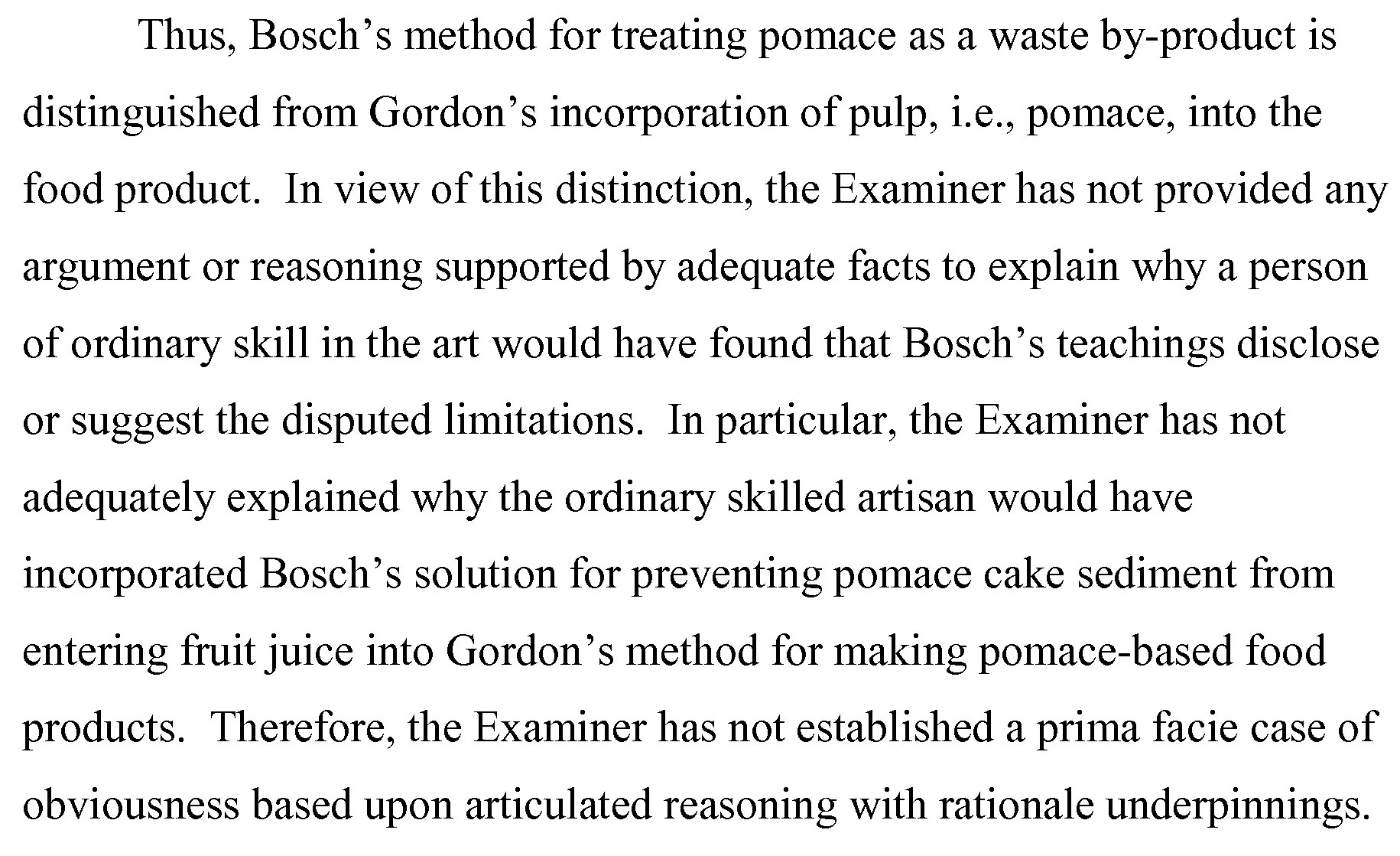Food processing inventions can be fascinating and often fly under the radar of some “high tech” patent attorneys. Personally, I love working on innovations in the food and beverage industry since they can impact so many peoples’ taste buds in a profound way.
Today we discuss a food processing invention by Tropicana (which is owned by Pepsi) related to pomace press cakes. A press cake is the solid mass remaining after pressing something to extract the liquids. In the case of pomace press cakes, that usually refers to the remains (pulp, seeds, skin, etc.) of grapes or other similar fruit after pressing out the juice. The invention relates to a method of processing pomace:

Often pomace remains are used as fertilizer and such, but generally not as an actual food product. Thus, while they have some edible elements, generally they are not suitable for eating and thus there is still a lot of waste. According to the application, the invention tries to find a way to process the pomace so as to form a useful food ingredient.
Tropicana’s case was assigned to art unit 1792. Overall that doesn’t seem like an issue, except that they were assigned an examiner that seems intent on rejecting applications. Thus, Tropicana dug in for the long haul and, after three appeal briefs, finally reached the PTAB and won a reversal.
The issue in the case was the classic one of obviousness. The examiner combined 4 references in an attempt to address the relatively simple claim 29. As part of the rejection, the examiner’s first three references (primarily Gordon) that allegedly showed the hydrating, acidifying and micro-grinding were lacking any disclosure of pomace press cakes. Thus, the fourth reference (Bosch), that did discuss pomace presse cakes, was used to support the idea that the claimed invention was obvious. The applicant pointed out a significant technical problem with combining the references as suggested by the examiner:

The Examiner’s response to this issue only made matters worse. Specifically, the Examiner then “clarified” that the proposed modification would involve creating the press cake during the pulping and sieving stage, not after. Tropicana rightly pointed out that this new explanation was even more problematic for the rejection since such a change would be pointless and result in formation of a press cake, rather than the pulp needed in Gordon’s process. In other words, one would have to recombine juice with the press cake to nullify the Examiner’s proposed change. The PTAB agreed and further noted that the fundamental reason provided by the Examiner to make the combination was incorrect:

So, Tropicana was finally successful in protecting their new approach to processing pomace and reducing waste. While it might have been prudent to provide a declaration from one skilled in the art to support the attorney argument in this appeal, in the end the Examiner’s inability to properly establish the rejection was enough for the PTAB. Tropicana’s approach here did a good job of tracking their arguments on appeal to the actual reasoning provided by the Examiner.

Leave a comment